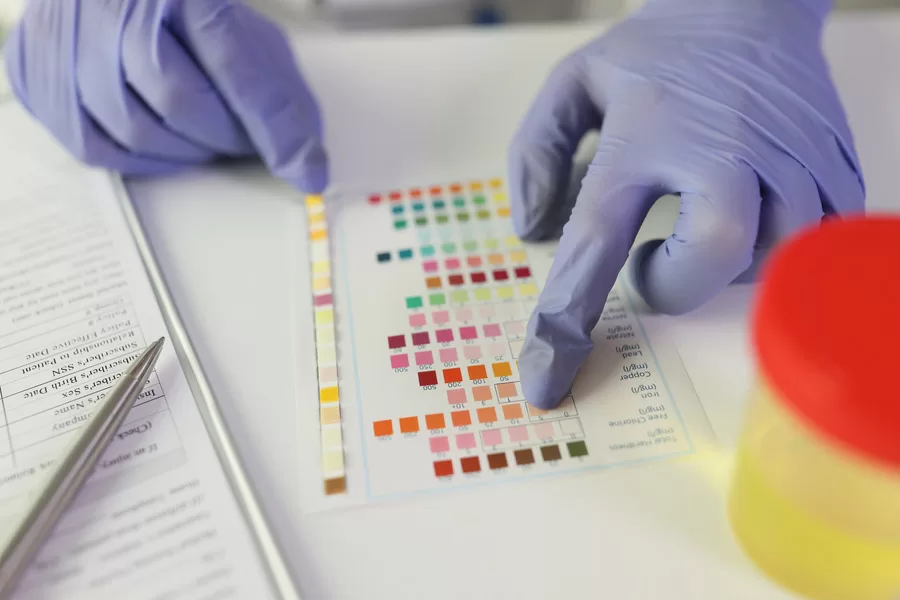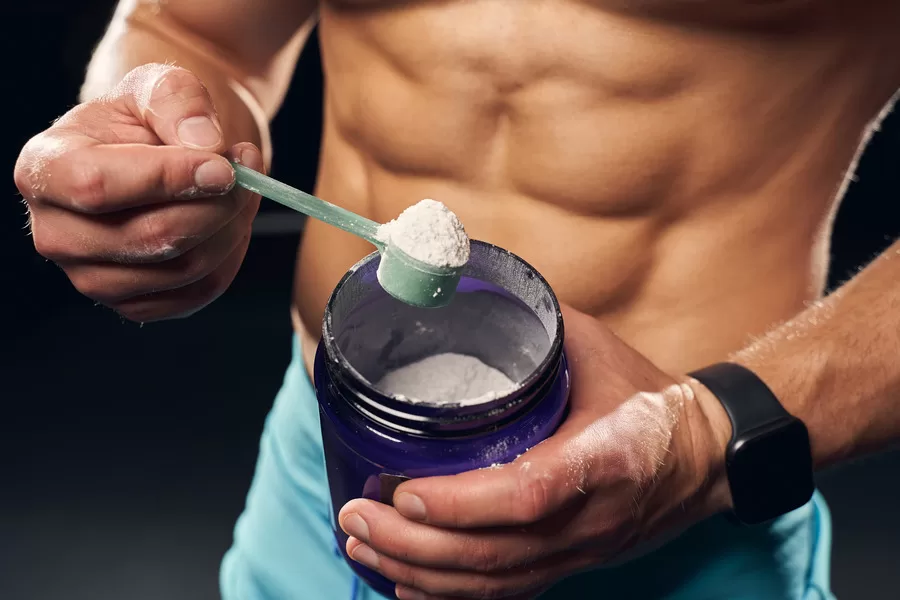
Are you concerned about how your use of testosterone supplements may affect your impending drug test? For that extra edge, a lot of people—from fitness enthusiasts to athletes—are turning to testosterone enhancements. However, what occurs if these supplements come into contact with drug testing?
Testosterone boosters are
The field of testosterone boosters is wide and diverse, and it has gained notice for its ability to improve one of our bodies’ most important hormones. These supplements have the potential to affect testosterone, which is essential for maintaining muscular mass, emotional stability, and general vigor. They make the claim that their various substances, which were chosen for their possible hormonal effects, will raise testosterone levels.
What are they made of?
Diindolylmethane (DIM), which is generated from vegetables like broccoli and is believed to enhance hormonal health, and exotic herbs like Rhodiola Rosea, which are said to help with stress management and hormonal balance, are among the natural components included in testosterone boosters. They coexist with well-known minerals like selenium, a trace element involved in several body processes, and omega-3 fatty acids, which are essential for general health.
It is also possible to get a range of testosterone boosters, some of which contain innovative synthetic compounds. Both direct testosterone elevation and its physiological repercussions are intended by their design. It’s best to utilize them with caution as they may have detrimental impacts on long-term health, especially if misused or taken without appropriate medical supervision.
What types are there?
Both over-the-counter products and prescription drugs are available that increase testosterone levels. While over-the-counter testosterone boosters are more widely available, their safety and long-term effects may not necessarily be as well-established as those of prescription testosterone boosters, which are subject to extensive clinical research for safety and efficacy.
Why are they taken?
Diverse demographic groups utilize testosterone pills for various reasons. Some people, like bodybuilders or sportsmen, could use them to gain muscle and increase their physical performance. Some people, especially those who are suffering age-related declines in testosterone, utilize these supplements to maintain hormonal balance and improve their quality of life. This wide range of applications highlights how important it is for the medical area to have specialized research and expert help.
Given the wide range of substances and limitations found in the supplement sector, it is important to comprehend these items as a whole. It is necessary to consult healthcare specialists in order to properly traverse the complexity of testosterone boosters and ensure that their use is safe, effective, and compatible with personal health objectives.
Drug Testing is
Why Do We Even Have Drug Tests?
Drug tests are like the guardians of safety and fairness. In sports, they keep the competition clean. In workplaces, they make sure everyone’s working safely. And in legal situations, they help maintain law and order.
Methods of taking tests
- Urine Tests: These tests are everywhere because they’re easy and informative. They can tell us if someone’s had a party with drugs in the last few days or up to a week.
- Blood Tests: When you need to know the nitty-gritty, like ‘Did this person take drugs in the last few hours?’, blood tests are the go-to. They’re a bit more up-close and personal but give you the latest scoop.
- Hair Follicle Tests: Want to know someone’s drug story for the last few months? Hair tests are like time travelers, holding onto drug tales for up to 90 days or more!
Certain things can influence these tests
- The Drug’s Signature: Different drugs leave different markers and for different lengths of time.
- How Often Someone Visits Party Town: Regular partygoers will have more signs of drug use than someone who’s just a casual visitor.
- Body’s Processing Power: Our bodies handle drugs differently, affecting how long these clues stick around.
- Test’s Detective Skills: Some tests are keener detectives, spotting even the sneakiest of drug traces.
- Dinner and Drinks: Believe it or not, what you eat and drink can sometimes play a part in the test results. It’s all about the body’s mixology!
Drug Test Interactions
One major worry about testosterone boosters is their potential to affect drug test results, particularly in settings where these tests are routine, like sports and the workplace. It’s crucial to comprehend how these supplements interact with drug tests.
False Positives:
‘False positives’ in drug testing are a noteworthy problem that testosterone supplements present. These supplements include certain chemicals that the body may metabolize and create indicators that are comparable to those of illegal narcotics. Consider a situation when a health supplement causes a false positive in a drug test. For athletes and professionals in fields with stringent drug-testing regulations in particular, this false positive might result in serious problems that could lead to penalties or miscommunications.
Hormonal Imbalances:
Testosterone boosters are known to significantly modify hormone levels. In the realm of drug testing, especially in sports doping control, this can be a red flag. Elevated levels of testosterone or its metabolites might suggest that an individual is artificially enhancing their hormone levels. Such a situation can imply doping, even if the elevated levels are solely due to legal supplement use. This misunderstanding can have serious repercussions, affecting reputations and careers in competitive fields.
Legality and Compliance:
The ingredients in testosterone boosters vary in their legal status, depending on the region and the specific sports authority. Athletes, in particular, need to be acutely aware of these differences. A substance that is legal and accepted in one country or sport might be completely banned in another. This variation necessitates a thorough understanding of relevant regulations to avoid accidental non-compliance, which could lead to disqualification or other penalties.
Given the intricate nature of testosterone boosters’ interactions with drug tests, those considering their use, particularly individuals who are regularly tested, should approach with caution. Consulting with healthcare experts, staying informed about the latest drug testing regulations in their sport or profession, and thoroughly researching the ingredients in any chosen supplement are essential steps. This approach helps individuals make well-informed decisions, ensuring they can benefit from testosterone boosters without falling afoul of drug testing protocols and regulations.
Which boosters do not affect the drug test?
Natural Boosters: Your Chill Companions for Drug Tests
- Herbal: These boosters are all about herbs like Fenugreek or Ashwagandha. They’re like the quiet achievers, boosting your testosterone the natural way without causing a fuss in drug tests.
- Vitamins and Minerals: Also in the mix are vitamins D and B6, along with minerals like zinc and magnesium. They’re the supportive, helping maintain your testosterone levels without grabbing the spotlight in a drug test.
- No Synthetics Here: Natural boosters usually say ‘no’ to synthetic hormones or anabolic steroids – the usual troublemakers in drug tests.
Label
- Seeking Nature’s Goodies: Scout for boosters that boast natural ingredients like herbs, vitamins, and minerals.
- Dodging the Sneaky Stuff: Keep a distance from boosters that list prohormones or other synthetic ingredients, as they can be the plot twisters in drug tests.
Remember, when it comes to supplements, natural ones are often your safest bet in the drug test arena.
Testosterone boosters and drug tests myths
Myth 1: “All Testosterone Boosters are a No-No for Drug Tests”
Fact: Natural testosterone boosters, filled with herbs and vitamins, are usually drug test friendly. But be cautious with synthetic ones – they can sometimes land you in hot water with drug tests.
Myth 2: “Testosterone Boosters are Just Fancy Steroids”
Fact: Steroids are a whole different story – they’re synthetic and have different effects and risks. Many boosters are natural and work in harmony with your body.
Myth 3: “It’s Easy to Spot Boosters That Will Fail You in a Drug Test”
Fact: If only it were that easy! The world of ingredients in boosters is vast and varied. Always play detective and check the label, or better yet, chat with a healthcare pro if you’re concerned.
Myth 4: “If It’s Legal, It Must Be Safe for Drug Tests”
Fact: Just because a booster is legal doesn’t mean it’s clear for all drug tests. Some legal ingredients might still raise flags, so it’s important to do your homework.
Myth 5: “Boosters are Only for Super Athletes”
Fact: Testosterone boosters aren’t just for athletes looking for a performance edge. People from all walks of life might use them for various health reasons, like keeping their hormones balanced or maintaining muscle strength.
How not to overdo it with protein?
Protein is like the fuel for your muscles, essential for fitness lovers and anyone looking to stay healthy. But how much and how often should you take it?
How Much Protein Do You Really Need?
The Basics: The amount of protein you need can depend on several factors like your age, gender, activity level, and fitness goals. A common guideline is to consume around 0.8 grams of protein per kilogram of body weight per day for the average adult. But if you’re active or aiming to build muscle, you might need more.
Protein Intake for Active Individuals
Up Your Game: If you’re regularly hitting the gym or involved in sports, your muscles will thank you for extra protein. Athletes or those in heavy training may need about 1.2 to 2.0 grams of protein per kilogram of body weight. It’s like giving your muscles extra building blocks to grow and repair.
Timing Your Protein Intake
Spread It Out: Instead of gulping down all your protein in one go, it’s better to spread it throughout the day. Aim for a balanced amount in each meal. This is like giving your body a steady supply of building materials rather than overwhelming it all at once.
Post-Workout Protein: The Recovery Window
Refuel After Exercise: Your muscles are like sponges after a workout; they are prepared to take in protein and begin growing and repairing. It may be helpful to try to eat some protein within two hours of working out. This might be a meal, a snack high in protein, or a smoothie.
Don’t Overdo It
Too Much of a Good Thing: Although protein is fantastic, consuming too much of it can strain your liver and kidneys and may not always result in greater muscle growth. It’s all about balance. Make sure you’re not simply concentrating on protein; fats and carbohydrates are equally vital!
Listen to Your Body
Personalization: Everybody has a unique body. Observe how your body reacts to varying protein consumption amounts. If you’re not sure, speaking with a nutritionist or other medical expert might offer tailored guidance.
Recall that protein is a component of both a healthy lifestyle and a balanced diet. Making the most of your protein intake may be achieved by being aware of your body’s demands and reacting accordingly. Enjoy the path to a healthy you by remaining informed, balanced, and in the know!
Conclusion
Different types of testosterone boosters exist, both natural and synthetic. They are employed to improve bodily function as well as hormonal balance. Natural boosters can be used in drug tests without causing abnormalities in the results. Synthetic boosters can. Knowing what’s in a supplement might help you avoid a negative test experience. Natural testosterone regulation can help you avoid trouble and get over your phobia of taking chances. a healthy lifestyle, a well-balanced diet, and an appropriate amount of protein.
FAQs
This is a supplement that is consumed for the overall performance and hormonal balance of a person.
There are two types, natural and synthetic. Natural ones are not scary and can’t really affect the results of a doping test, but synthetic ones have the opposite result.
So that it contains only natural ingredients, otherwise, if you are asked to do a doping test, there may not be very good consequences.







